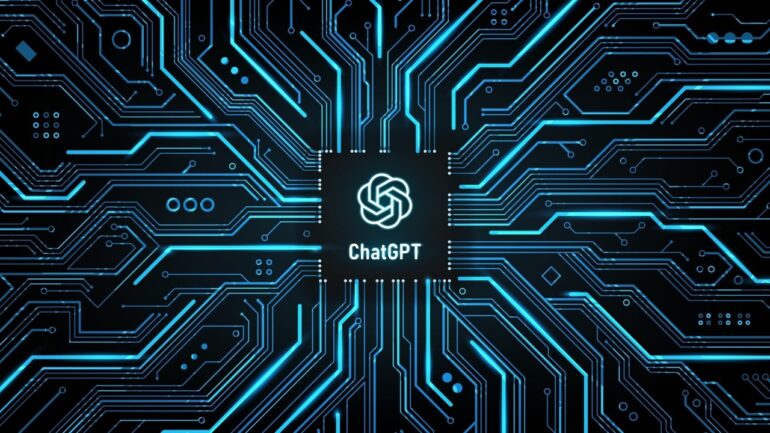TL;DR:
- OpenAI Inc. is being sued by anonymous individuals alleging the theft of personal information to train its AI models.
- The lawsuit claims OpenAI violated privacy laws by scraping 300 billion words from the internet, including personal data without consent.
- Plaintiffs seek class action status and estimate potential damages of $3 billion.
- ChatGPT and other OpenAI products are accused of being trained on private information taken from millions of internet users.
- Microsoft Corp., an investor in OpenAI, is also named as a defendant in the lawsuit.
- OpenAI is accused of conducting a clandestine web-scraping operation, violating terms of service agreements and privacy laws.
- The lawsuit alleges invasion of privacy, larceny, unjust enrichment, and violations of federal anti-hacking statutes.
- OpenAI’s actions raise concerns about privacy, misinformation, and the future of creative industries.
- Plaintiffs call for monetary damages, a temporary freeze on commercial access, and a halt to further development of OpenAI’s products.
Main AI News:
In a shocking turn of events, OpenAI Inc., the renowned creator of ChatGPT, has found itself entangled in a lawsuit filed by a group of anonymous individuals. These individuals claim that OpenAI has been brazenly pilfering copious amounts of personal information for the purpose of training its artificial intelligence models, all in a relentless pursuit of profits. Seeking class action status, the lawsuit accuses OpenAI of violating privacy laws by surreptitiously scraping a staggering 300 billion words from the internet. This includes extracting personal information without obtaining proper consent from the sources, such as books, articles, websites, and online posts. The lawsuit, a sprawling 157-page document, asserts that OpenAI’s actions pose a genuine risk of “civilizational collapse.”
In a move designed to protect their identities from potential backlash, the plaintiffs, represented by the Clarkson Law Firm, have chosen to be identified only by their initials while highlighting their respective occupations or interests. They have estimated the potential damages at a staggering $3 billion, basing this figure on the millions of individuals they believe to have been adversely affected.
The lawsuit alleges that OpenAI departed from established protocols for acquiring and utilizing personal information, opting instead for outright theft. The plaintiffs contend that ChatGPT, OpenAI’s popular chatbot program, along with other products, have been trained using private information sourced from hundreds of millions of internet users, including children, without their consent.
Surprisingly, Microsoft Corp., which has announced plans to invest a reported $13 billion in OpenAI, has also been named as a defendant in the lawsuit.
Despite repeated attempts to seek comments from OpenAI and Microsoft, representatives for both companies were not immediately available for response.
This lawsuit comes at a time when generative AI applications like ChatGPT have garnered immense interest due to their potential capabilities. However, they have also ignited a firestorm surrounding privacy concerns and the spread of misinformation. As Congress debates the promises and perils of AI technology, questions about the future of creative industries and the ability to discern fact from fiction continue to surface. OpenAI’s CEO, Sam Altman, even testified before Capitol Hill last month, advocating for AI regulation. Nevertheless, this lawsuit zeroes in on OpenAI’s questionable acquisition of data that forms the foundation of its products.
The suit accuses OpenAI, at the forefront of this burgeoning industry, of conducting a massive covert web-scraping operation that flagrantly violates terms of service agreements, as well as state and federal privacy and property laws. The plaintiffs invoke laws such as the Computer Fraud and Abuse Act, a federal anti-hacking statute that has been previously invoked in scraping disputes. Additionally, the lawsuit alleges invasion of privacy, larceny, unjust enrichment, and violations of the Electronic Communications Privacy Act.
The plaintiffs claim that OpenAI misappropriated personal data on an extensive scale to gain an advantage in what they describe as an “AI arms race.” The company allegedly illicitly accessed private information derived from individuals’ interactions with its products, as well as from various applications that have integrated ChatGPT. These integrations allegedly allow OpenAI to collect image and location data from Snapchat, music preferences from Spotify, financial information from Stripe, and private conversations from platforms like Slack and Microsoft Teams. According to the lawsuit, OpenAI, in pursuit of profits, has abandoned its original mission of advancing artificial intelligence for the greater benefit of humanity. The plaintiffs estimate ChatGPT’s projected revenue for 2023 to reach a staggering $200 million.
Conclusion:
This lawsuit against OpenAI for the alleged theft of private data has significant implications for the AI market. It highlights the growing concerns surrounding privacy and the ethical use of personal information in AI training. OpenAI’s reputation and partnership with Microsoft could be at stake as they face potential legal and financial consequences. The outcome of this lawsuit may impact the future development and deployment of AI technologies, prompting a closer examination of data acquisition practices and the need for stricter regulations in the industry. Trust and privacy will remain critical factors for businesses and individuals as they navigate the evolving landscape of AI.

